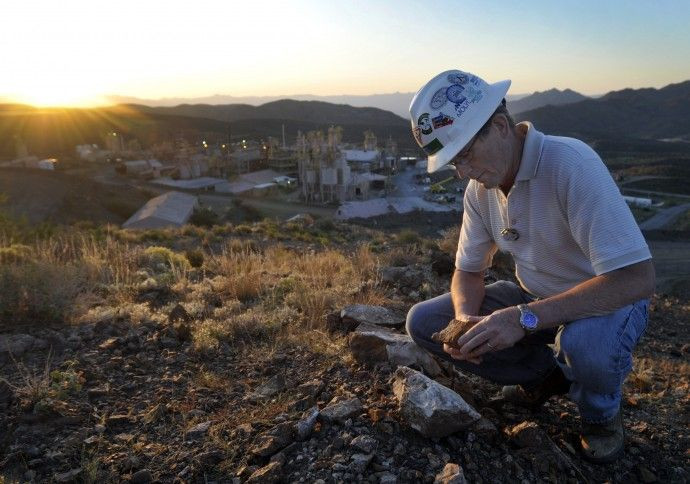Molycorp shares up after China cuts rare-earth export quota

Molycorp (NYSE: MCP) is rising following the decision by China to cut its exports of rare earth materials next year.
Molycorp shares are up about 5 percent , while Market Vectors Rare Earth/Strategic Metals (NYSE: REMX), the world’s first rare earth ETF, is up about 3.4 percent as of 9:40 a.m. (EDT)
China, which reportedly controls 97 percent of the global supply of rare earth minerals, said it will reduce its effective export quota by 35 percent for the first half of 2011 compared to the year-ago period.
Molycorp owns a rare-earth mine in Mountain Pass, Calif., which is expected to resume production next year after a decade of inactivity.
Recently, the company entered into a joint venture with Japan’s Hitachi Metals Ltd. in order to guarantee supply of rare earths and thereby reduce dependence on Chinese imports. Also, Japan’s Sumitomo Corp. agreed to cough up $130 million to Molycorp to arrange a seven-year supply of the materials.
Rare earths are essential in the manufacture of many electronic products, including PC monitors and television sets, as well as wind turbines and hybrid cars.
Two Australian companies, which have plans to mine rare earths, Lynas Corp. and Arafura, each surged about 10 percent overnight on the news.
Last week, the U.S. said it was very concerned about China's export restraints on rare earth materials, antimony and tungsten and that it may file a complaint with the WTO.
Earlier this year, China restricted rare earth exports to Japan following a territorial dispute, but later rescinded,
Export quotas continue to be a tool for the Chinese government to limit the export of China's strategic resource, said Lynas’ executive chairman Nick Curtis.
The growth in the Chinese domestic market coupled with a decrease in production of rare earths in China is a likely cause for the tightening of export regulations.”
According to industry forecasts, demand for rare earths is expected to more than double within five years to 250,000 tons from 120,000.
© Copyright IBTimes 2025. All rights reserved.





















